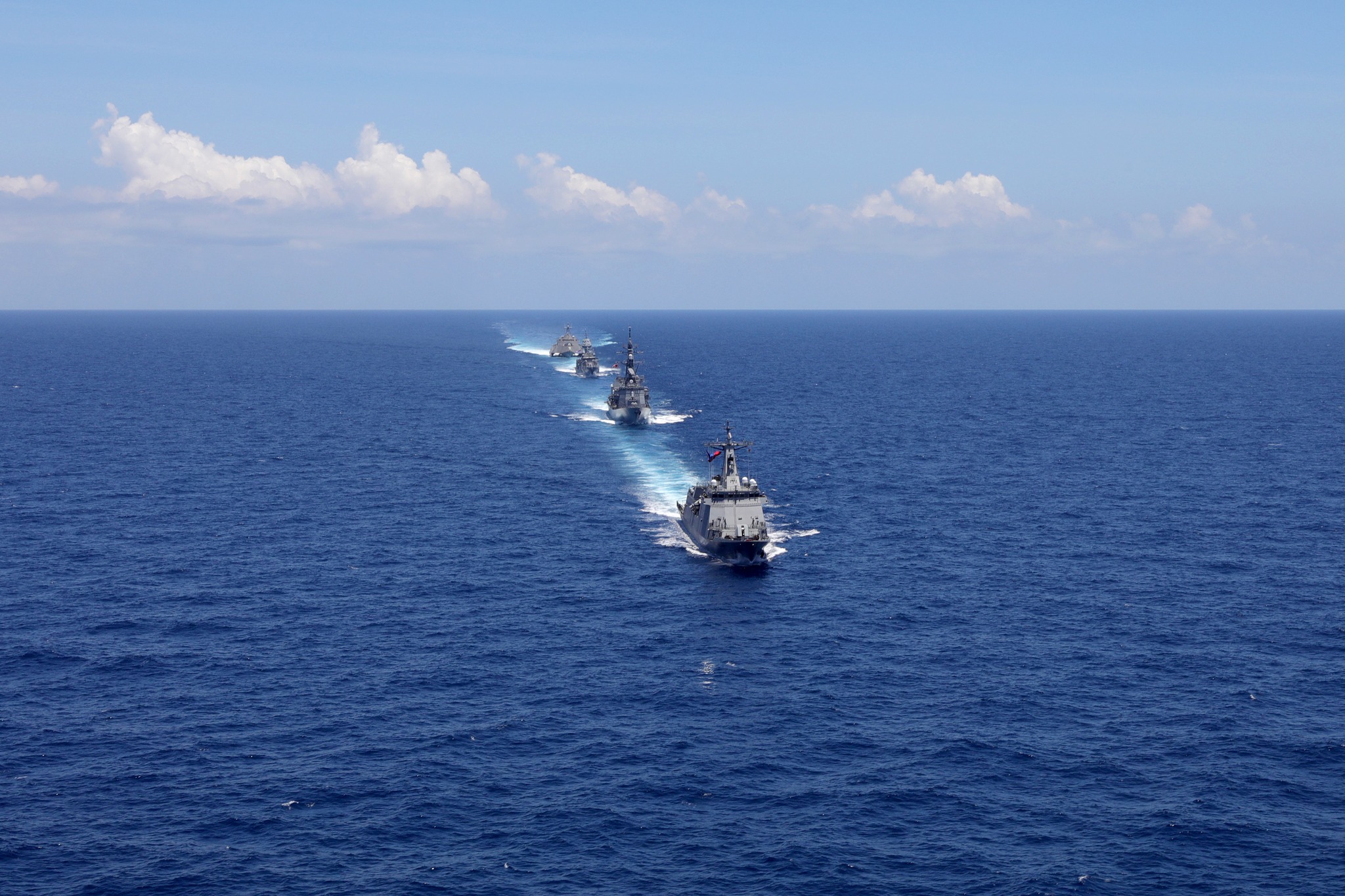News
PH in talks with ASEAN claimant states to fast-track COC progress
By Joyce Ann L. Rocamora, Philippine News Agency

FILE: SOUTH CHINA SEA (April 7, 2024) Australia, Japan, the Philippines, and the United States, conducted a Maritime Cooperative Activity (MCA), April 7. (Photo: U.S. 7th Fleet/Facebook)
MANILA – The Philippine government has initiated talks with Southeast Asian nations party to the South China Sea to fast-track progress on the negotiation of a code of conduct (COC) in the disputed sea, the Department of Foreign Affairs (DFA) said Thursday.
Speaking at the Pacific Forum-organized Manila Dialogue on the South China Sea, DFA Assistant Secretary Marshall Louis Alferez underscored the need to improve the pace of negotiation for an “effective COC”.
“The Philippines believes that improved coordination among the ASEAN claimant states is critical if we want to make substantive progress in this regard. This is why the Philippines has initiated and will continue to convene an informal coordination meeting with other ASEAN claimant states, as well as engaging with them bilaterally,” he said.
Talks on crafting a COC have been ongoing since 2018 after its framework was adopted and endorsed by the leaders of China and the Association of Southeast Asian Nations (ASEAN).
Progress, however, was stalled during the pandemic as the health crisis made in-person meetings virtually impossible to convene.
In an ASEAN Summit last month, President Ferdinand R. Marcos Jr. disclosed that to this day, parties have even yet to agree on the definition of a concept as basic as “self-restraint”.
“While there are divergences in positions and alignments among the ASEAN member states, we continue to hope that ASEAN would demonstrate a unified and stronger stance on this issue,” Alferez said.
“While the pace of the COC negotiations has to be improved, we remain confident that ASEAN continues to serve as an agent for peace and security in the region,” he added.
The COC is seen to serve as a set of agreed rules to manage incidents and prevent disputes from escalating into armed confrontations in the South China Sea.
Alferez said the agreed COC should be fully anchored on the United Nations Convention on the Law of the Sea and has to “effectively govern the behavior of parties at sea”.
He said this COC should also ensure that “third country user states” or non-party states continue to enjoy their rights and freedom in the South China Sea.





















